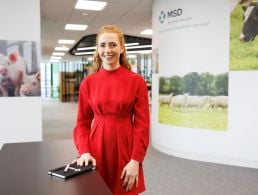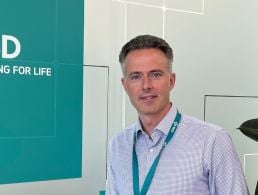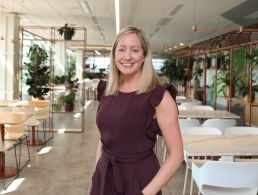MSD’s Mark Nolan discusses how the pharma company is going hybrid and what businesses need to think about as the workplace evolves.
When we think of remote or hybrid working, it’s easy to picture office-based workers switching from a communal workspace to a desk at home. But what about companies that have staff working in labs and manufacturing?
The pandemic forced pharma companies all over the world to adapt to a certain type of remote working and staggered shifts in order to ensure a safe working environment. Now, these companies also have to think about what their organisation will look like in a post-pandemic world.
Pharma company MSD has several sites across Ireland, manufacturing medicines, vaccines, biological therapies and animal health products. Its HR lead for Ireland, Mark Nolan, spoke to Siliconrepublic.com about how working life changed for the company’s staff, with the sudden shift to virtual engagement and adapting to changing protocols.
“When I think of what’s changed for people, is onboarding and training. We have a really good onboarding programme, really good training programmes, we’ve had to adapt them very quickly to onboard people and train people in a very different way,” he said.
“The pandemic has been a challenge for our early talent. As we think about our graduate programme, our interns, our people who are starting their careers for the first time, they’re starting in a really different way than what would be the norm.
“I think we just need to be really mindful in this hybrid model of supporting those folks to either get back to the sites, get into the offices, see what production area looks like, meet some of their team and to help them settle in as best they can.”
The future is hybrid
While health, safety and general supporting of staff during the pandemic has been at the forefront of employers’ minds, many people are looking beyond the pandemic to their new future of work.
For MSD, that includes a new hybrid model. Nolan said one of the key considerations when creating MSD’s hybrid working model was the ability to innovate.
“I think a lot of the studies that I’ve read … talk about this increased productivity during the pandemic but I think what we’ve also seen in these studies is a decrease in innovation,” he said.
“For a company like MSD, it’s really important that we’re innovating for our patients so that’s one thing that we’re making sure is in that hybrid model.”
Companies around the world have been rolling out long-term remote working strategies over the last few months, with many major tech companies such as Google planning to allow some of their staff to work from home permanently.
For a pharma company such as MSD, Nolan said it was critical to ensure that its hybrid model caters to every function and role within the business.
“Some will be more site-based, some will be remote, some will be a combination,” he said, “One thing I really liked was we didn’t get very rule-specific about it. I think it helps increase our trust-based culture because it’s not about where we do the work, it’s about the work that we do.”
Nolan added that the most important part of adapting to the new future of work is allowing hybrid models the time they need to evolve.
“I think this hybrid way of working was always going to come, I think it was something that every company was looking towards and the pandemic has really accelerated that,” he said.
“While there are advantages to that, we have asked people to move along that change curve really, really quickly and what we want to make sure is that by putting the effort in now, having the conversations now, that we have a really inclusive trust-based and innovative hybrid working model into the future.”




